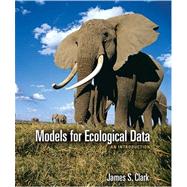Models for Ecological Data
, by Clark, James S.- ISBN: 9780691121789 | 0691121788
- Cover: Hardcover
- Copyright: 3/26/2007
The environmental sciences are undergoing a revolution in the use of models and data. Facing ecological data sets of unprecedented size and complexity, environmental scientists are struggling to understand and exploit powerful new statistical tools for making sense of ecological processes.InModels for Ecological Data, James Clark introduces ecologists to these modern methods in modeling and computation. Assuming only basic courses in calculus and statistics, the text introduces readers to basic maximum likelihood and then works up to more advanced topics in Bayesian modeling and computation. Clark covers both classical statistical approaches and powerful new computational tools and describes how complexity can motivate a shift from classical to Bayesian methods. Through an available lab manual, the book introduces readers to the practical work of data modeling and computation in the language R. Based on a successful course at Duke University and National Science Foundation-funded institutes on hierarchical modeling,Models for Ecological Datawill enable ecologists and other environmental scientists to develop useful models that make sense of ecological data.Consistent treatment from classical to modern BayesUnderlying distribution theory to algorithm developmentMany examples and applicationsDoes not assume statistical backgroundExtensive supporting appendixesAccompanying lab manual in R






